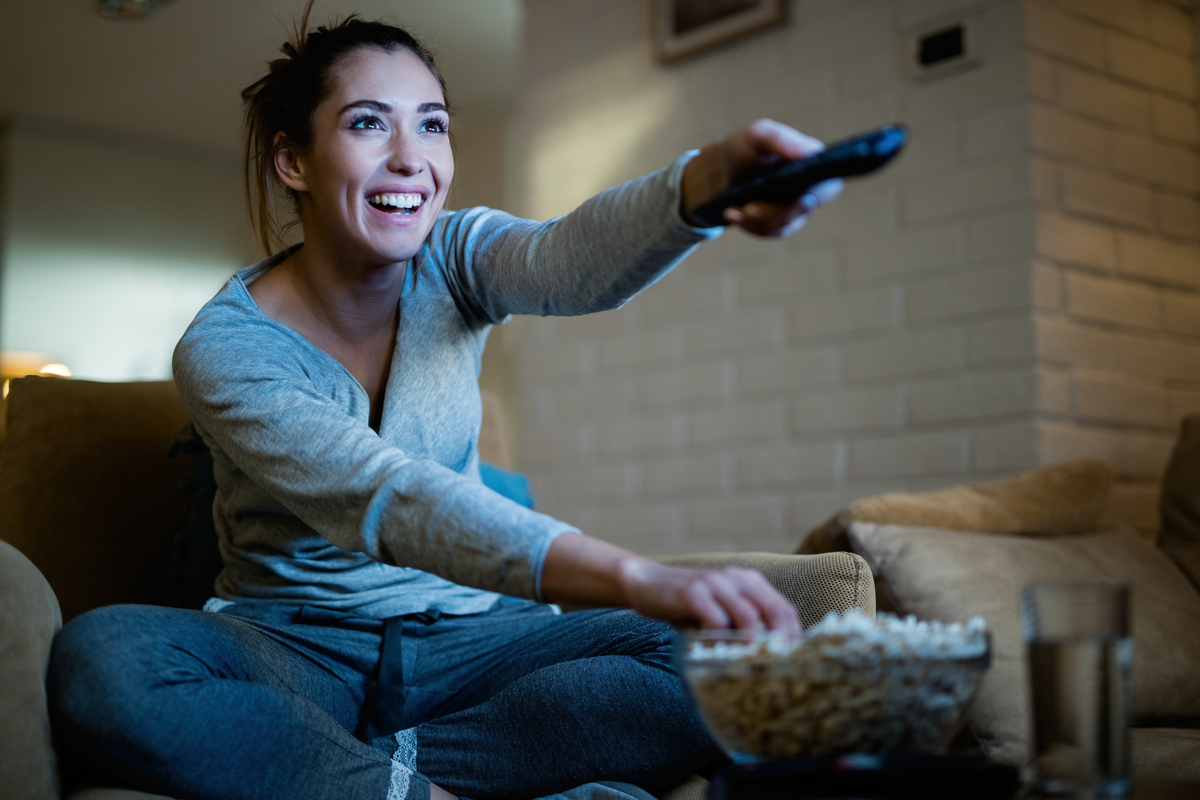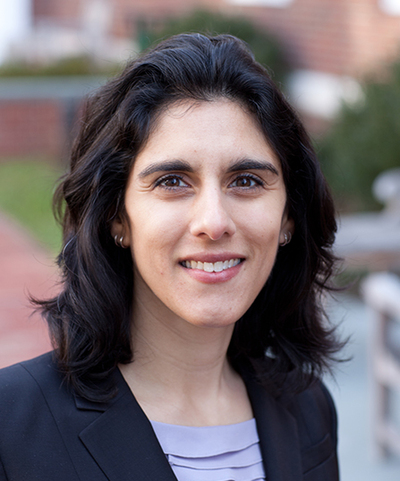
New UC San Diego research reveals people schedule their binge watching, preferring to consecutively watch some programing over others and will pay with money or time to binge shows
If viewers sometimes feel guilty about binge-watching television programing, they really shouldn’t. Though its name implies impulsive behavior, binge-watching TV is a common activity planned out by viewers, suggests new research from the University of California San Diego’s Rady School of Management and School of Global Policy and Strategy.
The study, in collaboration with the Tepper School of Business at Carnegie Mellon University and Fox School of Business at Temple University, reveals that viewers prefer to binge-watch certain types of programming over others. They’re also more likely to pay to watch shows consecutively and/or wait to be able to consume more than one episode at a time.
“We find that the notion of a show being so interesting that it just sucks people in and they can’t pull away is not the whole story,” said study coauthor Uma Karmarkar, assistant professor of marketing and innovation at UC San Diego’s Rady School of Management and School of Global Policy and Strategy. “Binge-watching can have a negative connotation, like binge eating or binge drinking. It is generally seen as impulsive, maybe problematic, but certainly very indulgent. However, media consumption is more complex. Binge-watching is not always about a failure of self-control; it can also be a thoughtful preference and planned behavior.”
The paper that is forthcoming in "The Journal of Experimental Psychology: Applied" finds that people tend to plan to binge shows they perceive to be more sequential and connected—those that have an overarching narrative. These include media like “Bridgerton,” “The Handmaid’s Tale,” “Stranger Things” and others, which are consumed consecutively, as compared to series with episodes perceived as independent of one another. Such examples include “Law and Order: SVU” or reality competition shows, like “Chopped.

However, the authors do find that no matter how bingeable a show is, viewers are much less likely to plan to watch multiple episodes if the streaming service or channel features commercials.
In addition, the findings suggest that genre alone isn’t a good predictor of a desire to binge. The authors find that documentary series—if they have a consecutive story line—can be just as bingeable as fictional series, illustrating a consistent model that extends into the field of “edutainment” programming.
Programming descriptions can influence what people plan to binge
This research also demonstrates that how shows are described and marketed to consumers can impact what they plan to binge and not binge.
“We find increased plans to binge can be triggered by merely framing content as more sequential vs. independent, which suggest that media companies can strategically emphasize content structure to influence consumer decisions and media viewing styles,” said study first author, Joy Lu, assistant professor of marketing at Carnegie Mellon’s Tepper School of Business.
The findings can be valuable to entertainment companies because they can be instrumental in helping them with market research, Karmarkar added.

“Viewing platforms could launch consumer surveys to get a sense for how likely a viewer would be to plan their schedule around binging a certain show,” she said. “This is important because streaming media companies don’t necessarily only want you to binge-watch on their platform. If you log back in at different times, you might see different ads, you may build loyalty to brand, and perhaps you keep your subscription longer. It could be beneficial for companies to want some of their content to be more bingeable and other content to be more spread out.”
Robust findings also have important implications for online education consumption
The paper included multiple studies involving hundreds of participants that replicated results and also revealed new findings. The paper’s first experiment showed that people can and do actually plan their binging. The authors surveyed people online, asking them to think about how they would plan to watch a show they wanted to stream. Participants were asked to then create a calendar over the next six days, which let the authors see whether they would stack episodes together or spread them out. Most people created “clumpy” viewing plans, involving binging multiple episodes at a time. But they didn’t stack all the episodes on one day, offering a different view of binging than the one predicted by a lack of self-control.
Another study gave participants a list of the top 100 television streaming series and asked half of them to classify the shows as more or less “bingeable” and the other half to classify the shows as independent vs. sequential. Not surprisingly, combining this data found that shows rated as highly bingeable were also rated as more sequential.
But the differences in plans to binge independent and sequential media were also replicated in how people approach streaming media in the form of online education courses. A separate experiment revealed that people are more likely to plan to binge a Coursera class if it is perceived to be more sequential. Taking this one step further, the authors analyzed real-world data from the Coursera platform and found that these plans to binge-learn accurately predicted viewing behavior in enrolled students.
The findings also resolve an apparent conflict with previous literature that finds that people often prefer to savor good experiences by delaying them and deriving additional pleasure from anticipation or spreading them out over time. The authors suggest that the prior work on this issue mostly involved independent experiences, such as going out to eat or going on vacations, which their theory also predicts would be “less bingeable.”
This story was originally published by the University of California, San Diego on May 23, 2023.